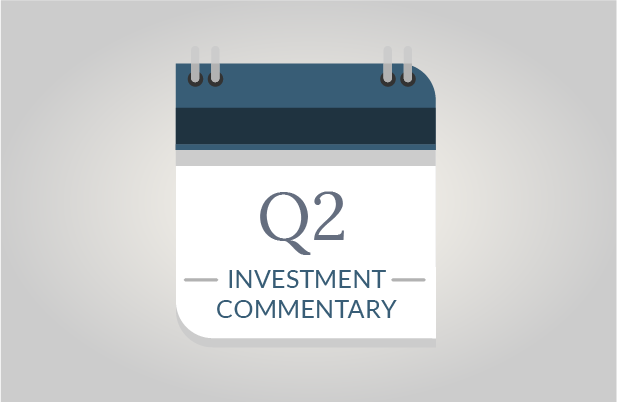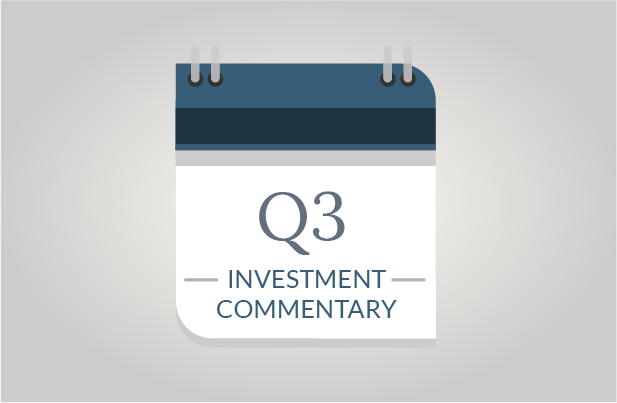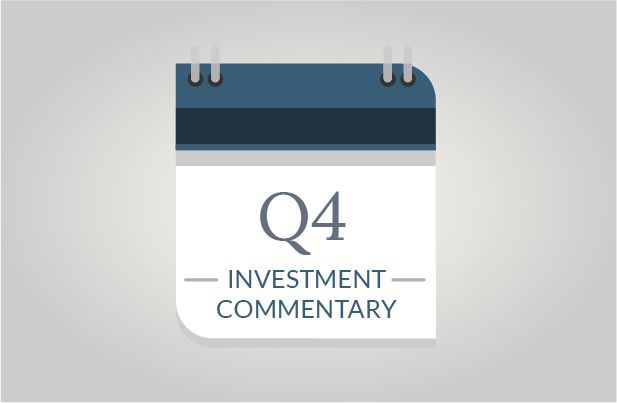A docile second quarter proved to be anything but calm in its final week as a convergence of international events in Greece, Puerto Rico and China captured headlines and erased second quarter market gains. The quarter end’s sudden drop occurred in spite of continuing improvement in the U.S. economy and in many of the world’s larger market economies. The next few weeks could determine if continued economic recovery is enough to fuel a full seven-year bull market rally.
As of writing this newsletter, Puerto Rico’s debt crisis is temporarily controlled, Greece’s fate remains in question, and China’s central bank is aggressively trying to contain a fast-moving bear market. We see limited risk potential from Puerto Rico or Greece. China presents the greatest risk, although perhaps coupled with the greatest potential to be stabilized with a swiftly acting government and central bank. We offer our thoughts on each event, as well as on appropriate investment positioning.
Greece
Greece is dominating headlines as the situation is complex and quickly changing, and it could be the first member country to leave the Eurozone. Such an exit would be a significant political and historical event, but we don’t foresee it being sizeable enough to create a prolonged and systemic market event. The Greek economy is small, roughly equivalent to that of Connecticut. Furthermore, the bulk of its debt is owned by the IMF, the European Central Bank and other European Union (EU) member countries. Very little debt is owned by investors, helping to limit market ripple effects.
Perhaps the greatest risks pertain to prolonged uncertainty as this Greek drama continues, and the future confidence of the EU’s stability. Very few decisions happen quickly in the EU as so many countries are involved. As such, we caution investors that the fate of Greece could remain uncertain for a number of weeks, likely representing the period of greatest market risk. Regardless of the outcome, questions pertaining to other member countries could linger – might other countries follow an exit or demand similar debt and austerity concessions? While we don’t see such questions presenting significant market risk, they could cast a lingering cloud over Europe and dampen growth potential.
Puerto Rico
Puerto Rico’s debt crisis has stabilized, at least temporarily. Outstanding debts are much smaller than those of Greece ($72 billion versus $271 billion), but could have a greater impact on U.S. investors, as U.S. hedge funds and municipal bonds funds own the majority of Puerto Rico’s debt. What’s complicated is that Puerto Rico is a U.S. territory, not a country. It can’t borrow from the IMF; it can’t change or devalue its currency; and, it can’t file for bankruptcy. So far, court cases to file for Chapter 9 municipal bankruptcy, following the path of cities like Detroit, have failed. Politicians are discussing options for bankruptcy protection, which, if granted, would lead to the largest municipal default in U.S. history. The opposition to bankruptcy is strong, primarily from hedge funds accustomed to large court fights such as those with Argentina.
Thus far, creditor concessions and extensions have been fairly quick to surface, providing hope of ultimately reaching longer-term creditor agreements. This gives us cautious optimism as we look forward. Additionally, our portfolios are largely void of any Puerto Rican debt exposure, helping to limit material impacts.
China
The Chinese stock market had been flying high, up 162% from its low in 2014, until the bubble burst in mid-June. Since then, the index has lost more than $3 trillion dollars, officially moving into bear market territory. China’s economy is the second largest and its stock market is the fifth largest in the world, meaning that the outlook for China is material to the outlook for the global markets.
The Chinese middle class is growing, including a population of consumers and investors. Some think that the number of people with cash to allocate could fuel huge growth in the Chinese stock market for years to come. Hype from a number of IPOs, such as Alibaba, and a quick rise in the markets certainly started that trend, but perhaps too fast, with too much frenzy and too much leverage. Novice and leveraged investors quickly learned a lesson once the markets began to descend on June 12.
China’s government and central bank have been quick to respond with several actions to promote growth and to stabilize the markets. The central bank has repeatedly cut rates and the government recently halted all initial public offerings and instructed all state-controlled securities firms, mutual funds and sovereign-wealth funds to buy stocks in support of the market.
Thus far, China has been fairly adept at managing a soft landing – transitioning from a high growth infrastructure economy to a more modest growth consumer economy. The government understands that fretful investors would beget fretful consumers, a risk that it can’t afford.
Government intervention is certainly common place in China, and for many years it’s been incredibly effective at generating government-desired results. From this standpoint, we see the greatest potential for large-scale actions to stabilize the markets. However, it remains unclear whether the Chinese approach of restrictive policies will be successful in influencing free trading on the global stock market. This shadow of doubt was evident in the differing reactions of the Shanghai and Hang Seng indices to the Chinese central bank’s instructions. Where the Chinese Shanghai index predictably rose, the Hong Kong Hang Seng, representative of the free markets, rapidly fell. We continue to monitor both indices, and markets as a whole. Whether or not the Chinese government’s controlling hands can effectively prevent market declines remains to be seen.
In Summary
SageVest Wealth Management cautions investors that risks could remain elevated, at least in the short-term. Markets could easily move lower, just as they could rapidly move higher when and if current crises are resolved. This means that it’s more important than ever to ensure your investment structure is appropriate to satisfy your competing goals to preserve and to grow your wealth. You need to know you have enough to satisfy your financial and psychological needs for security. You need a little dry powder to buy if opportunities arise. Finally, you need to keep enough invested for the long-term to prevent missing out on opportunities if the bull market resumes its rally.
As always, we encourage you to contact us with any questions about your investments or other financial considerations.




